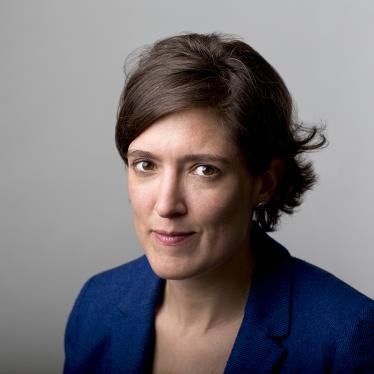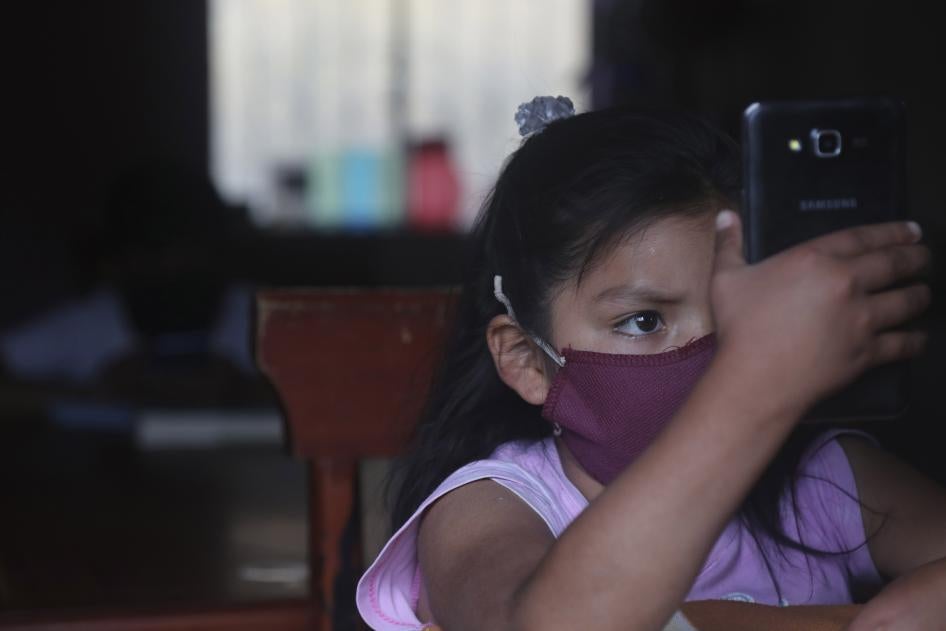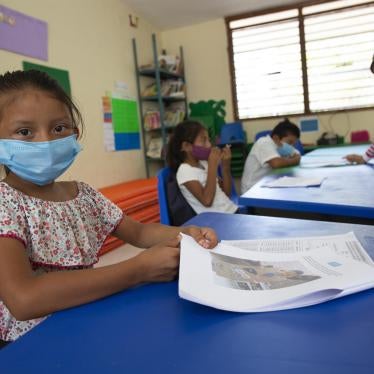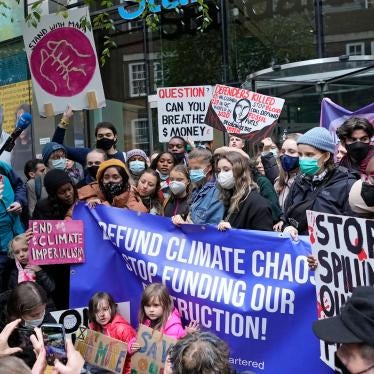I’ve spent most of my career talking to parents who moved heaven and earth to get their children an education.
There was the mother from Mogadishu, Somalia, who told me she gave thanks every afternoon when her children returned safely from school, until Al Shabaab fighters abducted her 17-year-old daughter and she had to flee with her other children. The Tamil grandmother who fled aerial bombing through lagoons during the years-long conflict in Sri Lanka only to ask, the night she arrived in a tent encampment, how her grandson would take exams. Syrian families reaching Europe who told my colleagues that they decided to make the dangerous Mediterranean crossing in part because their children could not get educated as refugees in Lebanon or Jordan.
These parents’ passionate belief that education was so essential for their children’s lives that it was worth great risk has motivated my work to protect education during war, and to get refugee children in school.
Now my own daughters have been in their New York City school building only 18 days in the last 14 months. New York City’s department of education can’t account for several thousand of its students, one sign of the nationwide economic and racial inequality that has affected children’s access to education during the pandemic.
There’s no comparison between fleeing war and studying a watered-down curriculum safely at home. But hundreds of caregivers around the world, as well as children and teachers, with whom we have spoken over the past year have described that same middle-of-the-night anxiety—and anger and impotence—when children are denied their right to education.
The COVID-19 pandemic disrupted the schooling of 90% of the world’s student population as schools across the globe were closed to slow the spread of the novel coronavirus. Millions have entirely lost out on their education since the pandemic started; millions will never return to it.
We found in our new report that governments were unprepared to enact emergency action plans for large-scale school shutdowns and have failed to respond effectively to the challenge of delivering education as the pandemic persists. Governments have failed to support marginalized students, including those with disabilities, or to provide alternatives for students without access to computers or Wi-Fi. And governments have not protected children’s digital privacy when using online platforms.
For millions of students, the school closures abruptly ended their education. Children have begun working, taken on family and caregiver responsibilities, and some have simply decided not to come back or that they would never catch up or became too old for the free education available where they lived. Even as some students begin returning to their classrooms, the evidence suggests they will continue to feel the consequences of learning lost for many years.
This is on top of the 262 million children worldwide who were out of school before the pandemic — from Rohingya refugee children barred from any formal education in Bangladesh to pregnant girls and young mothers banned from school in Tanzania. The pandemic has illuminated governments’ long-term failure to remedy discrimination and inequalities in their education systems, and to ensure basic services, such as water and toilets at schools, affordable, reliable electricity at home, and meaningful access to the internet.
“Years don’t wait for them. They have already lost a lot,” said a mother in the Democratic Republic of Congo (DRC) whose children’s schools were closed because of the pandemic. “What will become of our uneducated children? That’s the big question, which in my opinion every parent is asking.”
At 2 a.m., this is certainly the question I’m asking. In the light of day, I field my own work, quiz my daughters on Spanish verbs, and hope the internet holds.
From NYC to DRC, the clock is ticking. Governments should respond to this global emergency by placing education at the core of all recovery plans. This should include addressing both the impact of the pandemic on children’s education and pre-existing problems by swiftly removing discriminatory policies and practices, and taking steps to ensure that all students have affordable, reliable, internet access. In light of profound financial pressures on national economies from the pandemic, governments should protect and prioritize funding for public education.
Equally important, outreach for back-to-school campaigns should be broad, and welcome children and youth who were out of school when schools had to close. This includes half of all refugee children, who were not in school before and whose situation the pandemic has made worse.
In addition to tackling deep inequalities in their own education systems, countries like the U.S. that provide significant international assistance should continue and increase their support for education globally, including in emergencies, and press recipient countries to eliminate discriminatory rules that keep refugees, pregnant girls and young mothers, and other children out of school.
Our children lost more than a year of education, of social and emotional health, of critical development as part of the efforts to make sure we all could stay safe. They deserve and are entitled to have that sacrifice honored by restoring and improving their access to education.
We should all understand the pain of any child out of school for any reason—a pandemic, a natural disaster, or war—and the urgency of using the lessons of this crisis to ensure that in the future, these children are not asked to wait.
As the Congolese mother explained, “Yes, we don’t want our children to get infected, but we want them to learn.” When it comes to our children’s education, time is of the essence.










